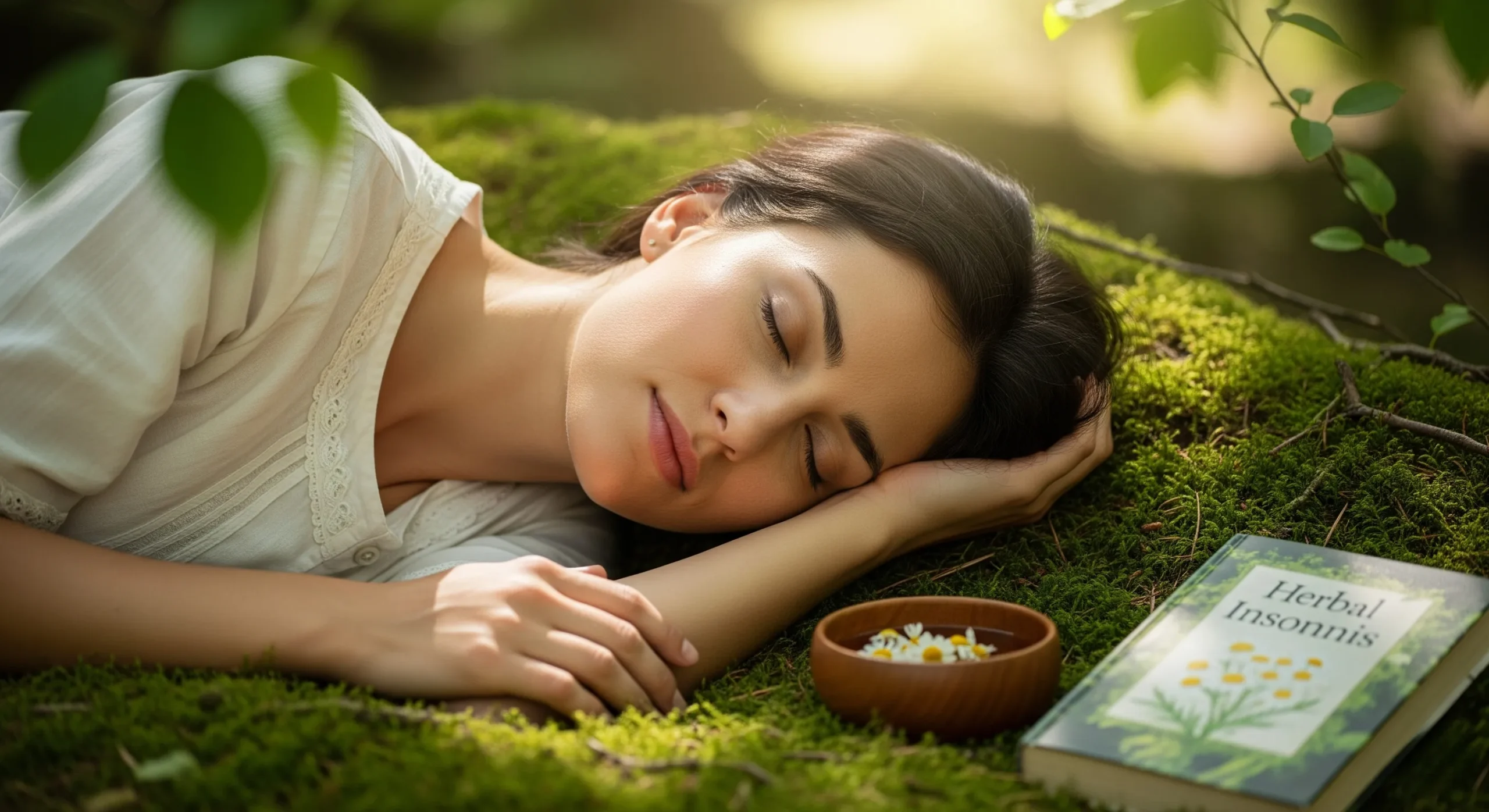5 Natural Ways to Treat Insomnia Without Medication

Let me guess—you’re tired, but sleep just won’t come. You toss and turn, check the time, count imaginary sheep, and still, nothing. I’ve been there. It’s lonely at 3 AM when the world is asleep, and you’re staring at the ceiling, begging your brain to switch off. Insomnia is more than just a bad night—it steals your focus, your mood, and sometimes, your joy.
The good news? You don’t have to depend on sleeping pills to find your way back to rest. Nature has given us tools—simple, gentle, and powerful ways—to soothe our bodies and minds. This guide walks you through 5 natural ways to treat insomnia without medication. These are not hacks or quick fixes, but habits that create lasting change. I’ll share research-backed tips with a sprinkle of personal experience—so grab a cozy blanket and let’s dive in.
1. Reset Your Body Clock with Natural Light
Have you ever noticed how peaceful it feels to wake up with the sun on a camping trip? That’s your circadian rhythm falling back into place. Our sleep-wake cycle follows nature’s light cues. But modern life? It messes that up.
Artificial lighting, blue screens, and late nights confuse your brain. The fix? Start your day with real sunlight. Just 10–15 minutes of morning sun helps signal your brain that it’s time to be alert—so it knows when to shut down later.
I began walking my dog each morning. No headphones. Just me, the sunlight, and the sound of birds. It felt silly at first, but after two weeks, my body started feeling tired at night—naturally.
Here’s how to reset your sleep cycle:
-
Get sunlight within 30 minutes of waking
-
Avoid bright screens 1–2 hours before bed
-
Use warm lighting indoors in the evening
-
Dim lights after sunset to mimic dusk
| Activity | Best Time | Benefit |
|---|---|---|
| Morning sunlight | Within 30 minutes of waking | Resets internal clock |
| Evening dim lights | 1-2 hours before bed | Triggers melatonin |
| Screen curfew | 9 PM or earlier | Reduces blue light exposure |
When you honor your body’s rhythm, it starts working with you, not against you.
2. Create a Sleep-First Environment That Feels Like a Hug
Think of your bedroom like a nest. Is it inviting? Does it whisper “rest” or scream “multitask”? Many of us use our bedrooms for work, eating, scrolling, even arguing. It’s no wonder our brains feel confused.
I had to make changes too. I took out the TV, switched to blackout curtains, and sprayed a little lavender oil on my pillow. The difference? It felt like entering a sanctuary—my nervous system started relaxing the moment I stepped in.
Here’s how to turn your bedroom into a sleep haven:
-
Keep it cool (60-67°F is ideal)
-
Invest in a comfy mattress and breathable sheets
-
Use blackout curtains or a sleep mask
-
Add calming scents like lavender or chamomile
-
Remove electronics or anything work-related
Let the space reflect peace. It doesn’t have to be Pinterest-perfect. Just clean, calm, and consistent. Your body will associate the room with sleep, not stimulation.
Pro tip: I use a small white noise machine to drown out city sounds—it’s like falling asleep in a cocoon.
3. Embrace a Gentle Night Routine That Tells Your Brain: “It’s Time”
Ever notice how babies need a bedtime routine? Bath, lullaby, dim lights. They don’t fight it. It’s comforting. Adults need that too—we just forget. A wind-down routine cues your mind to shift from high alert to soft surrender.
Mine looks like this: warm shower, chamomile tea, a few stretches, and a calming book (not on my phone). I do it at the same time every night. It’s like turning off switches—one by one.
Here’s a simple, natural evening ritual:
-
Herbal tea – chamomile, valerian root, or lemon balm
-
Warm bath or shower – lowers body temperature post-shower, triggering sleepiness
-
Journaling – unloads mental clutter
-
Breathing exercise – inhale 4, hold 7, exhale 8 (known as the 4-7-8 method)
These small signals tell your nervous system it’s safe to rest.
Bullet points to keep in mind:
-
Avoid stimulating activities (like emails or intense shows)
-
Keep the lights low
-
Repeat the routine in the same order each night
Consistency is key. Over time, your brain connects the dots: “Ah, we’re winding down. Time to sleep.”
4. Use Food and Herbs as Natural Sleep Allies
Your plate affects your pillow more than you think. Some foods calm the body, while others ramp it up. Heavy, spicy meals late at night? Total disaster for sleep. Sugar, alcohol, and caffeine? Even worse.
Instead, think of food as a sleep tool. Magnesium-rich snacks like bananas, almonds, or a small bowl of oatmeal can help. Warm milk has tryptophan. And certain herbs? Game-changers.
I once swapped my usual bedtime snack with a small banana and warm almond milk. The first night, nothing changed. But after a week? I started feeling naturally sleepy around 10 PM.
Here are nature’s sleepy food heroes:
| Food/Herb | Why It Helps |
|---|---|
| Bananas | High in magnesium and potassium |
| Almonds | Natural source of melatonin |
| Oatmeal | Boosts serotonin |
| Chamomile tea | Calms the nervous system |
| Valerian root | Mild sedative effects |
Keep dinner light and early. Avoid caffeine after 2 PM. If you’re hungry before bed, choose something small and calming.
Note: Everyone’s body reacts differently—trust your gut, literally. Keep a food-sleep journal if needed.
5. Move Your Body—But Not Too Late
Exercise is one of the most underrated sleep remedies. But it’s not just about working out hard. It’s about moving with intention.
I used to work out late at night. It felt good—until I realized it left me wired. Switching to morning walks and afternoon yoga made all the difference.
Exercise reduces stress hormones like cortisol and helps the body release pent-up tension. But timing matters.
Ideal sleep-friendly activities:
-
Morning or afternoon walk (20-30 mins)
-
Gentle yoga before bed
-
Stretching or body scan meditation
-
Tai Chi or Qigong (especially for older adults)
Avoid intense cardio in the evening. It can spike adrenaline and mess with your sleep. Think of movement as a way to ground your body during the day so it can let go at night.
Benefits of regular movement:
-
Helps regulate body temperature
-
Boosts melatonin at night
-
Reduces anxiety and depression
-
Improves deep sleep stages
You don’t need a gym. Just move with love.
Final Thoughts: Sleep Is a Ritual, Not a Race
Getting better sleep isn’t about forcing it. It’s about inviting it back. Like a friend who stopped visiting because life got too loud. These natural ways to treat insomnia without medication aren’t magic—they’re gentle nudges, helping your body remember what it already knows.
Start with one small change. Maybe it’s morning sunlight. Or turning off screens earlier. Let it grow. Be patient. You’re not broken—you’re just out of rhythm. And rhythm, like nature, always finds its way back.
If you’re struggling, know that you’re not alone. I’ve been there, blurry-eyed and frustrated. But I promise—when sleep returns, it feels like being hugged from the inside out.
Let your nights be soft again. You deserve rest. Not just sleep—but the kind that heals.
